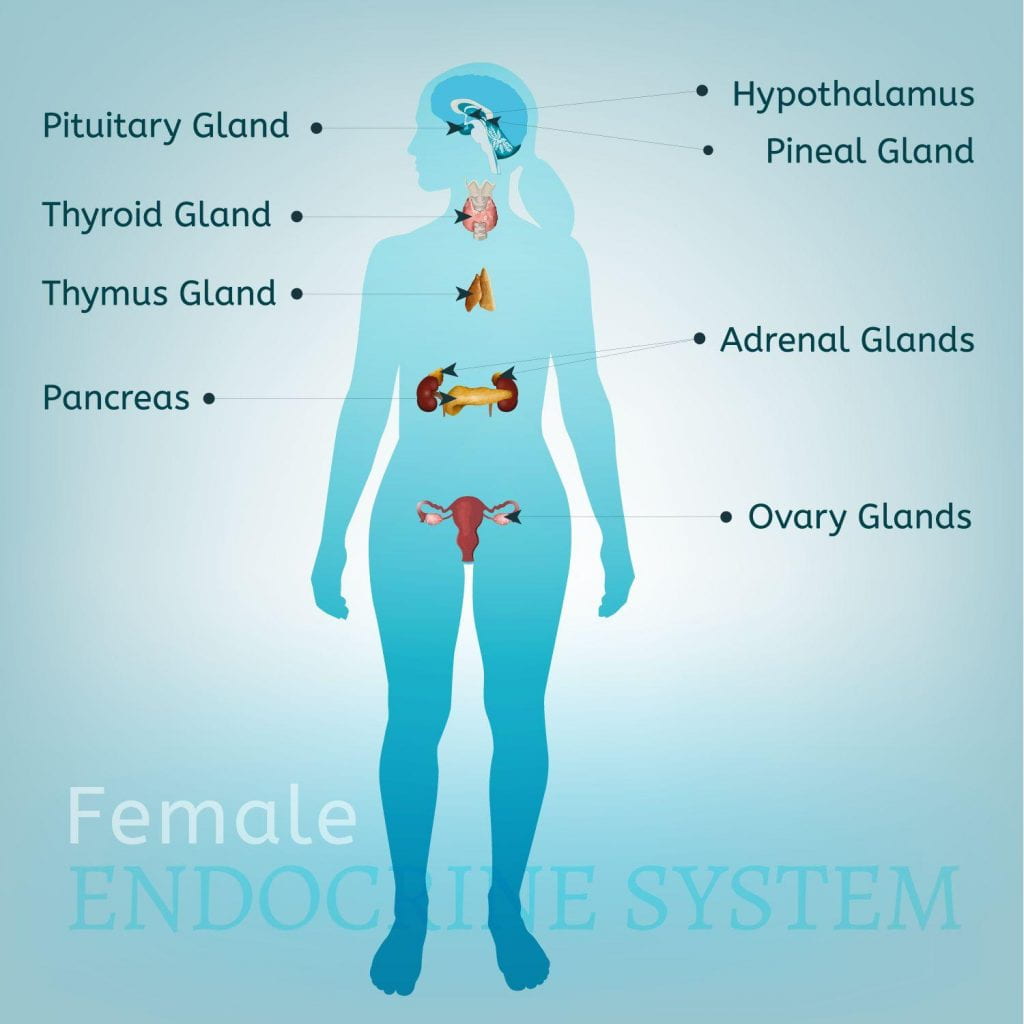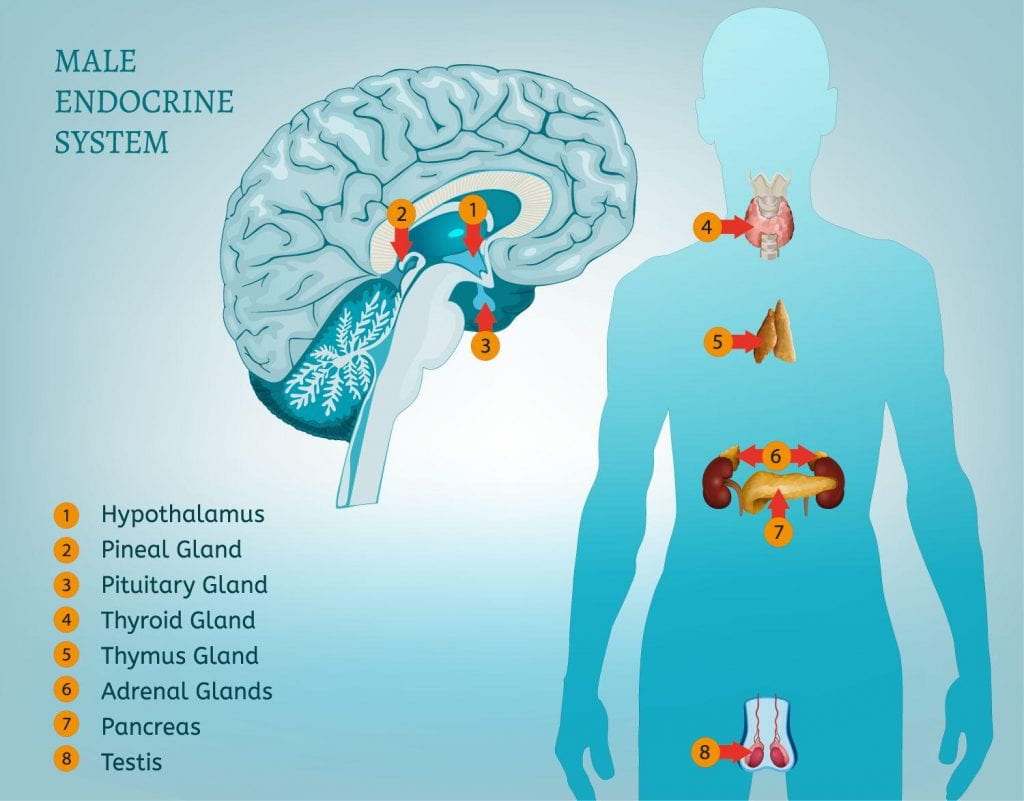Endocrinology
Endocrinology is the study of the body’s endocrine glands. Endocrine glands produce hormones, which are molecules that serve as messengers throughout the body. Each hormone is designed to trigger a very specific response in a specific part of the body. Endocrinologists are physicians who specialize in diagnosing and treating disorders of the endocrine system.
The Endocrine Glands
Adrenal Glands
Location: There are two adrenal glands located on the top of each kidney.
Hormones produced: Adrenaline, aldosterone and cortisol.
Purpose: Hormones of the adrenal glands maintain sodium, chloride and potassium levels in the blood, maintain blood pressure, help control kidney function and control overall fluid concentrations in the body.

Hypothalamus
Location: Within the brain. Hormones produced: Many hormones that affect the brain, nervous system, and other glands.
Purpose: Hormones of the hypothalamus regulate an extremely wide range of basic body functions, such as heart rate, blood pressure, sleep, appetite, thirst and regulation of body water and body temperature. These hormones exert their control by acting on the brain, nervous system and other endocrine glands.
Pancreas
Location: Deep in the abdomen behind the stomach.
Hormones produced: Insulin, glucagon, somatostatin and others.
Purpose: Hormones of the pancreas control blood sugar and regulate the use and storage of nutrients such as glucose, amino acids, and triglycerides. The pancreas also plays a role in digestion; it produces digestive enzymes that are secreted into the small intestine.

Parathyroid Glands
Location: There are four parathyroid glands located in the neck behind the thyroid gland.
Hormone produced: Parathyroid hormone (PTH).
Purpose: PTH maintains the correct levels of calcium and phosphorous throughout the body.
Pituitary Gland
Location: Base of the brain.
Hormones produced: Thyroid stimulating hormone (TSH), follicle stimulating hormone (FSH), adrenocorticotropic hormone (ACTH), growth hormone, and others.
Purpose: The pituitary plays a key role in regulating growth and development, metabolism and reproduction. It controls the activity of many other endocrine glands, including the thyroid, ovaries, adrenal and others. Examples of pituitary hormones and their functions: growth hormone regulates growth; ACTH stimulates the adrenal glands to produce cortisol; TSH signals the thyroid gland to produce thyroid hormone; luteinizing hormone and follicle-stimulating hormone regulate ovulation and estrogen and progesterone production in women, and sperm formation and testosterone production in men.
Reproductive Glands—Ovaries and Testicles
Location: Ovaries (in women) are located inside the lower abdomen. Testes (in men) are located underneath the penis.
Hormones produced: Ovaries produce estrogen and progesterone. Testes produce a variety of “male” hormones called androgens, including testosterone.
Purpose: Reproductive hormones regulate development and reproductive functions. Estrogen controls development of female sex characteristics during puberty and also stimulates growth of the uterine lining during the menstrual cycle. Progesterone helps fertilized eggs to attach to the uterus and develop into an embryo. Testosterone is responsible for the development of male sex characteristics during puberty and for stimulating sperm maturation. Androgens enhance the growth of body tissues, especially muscle.